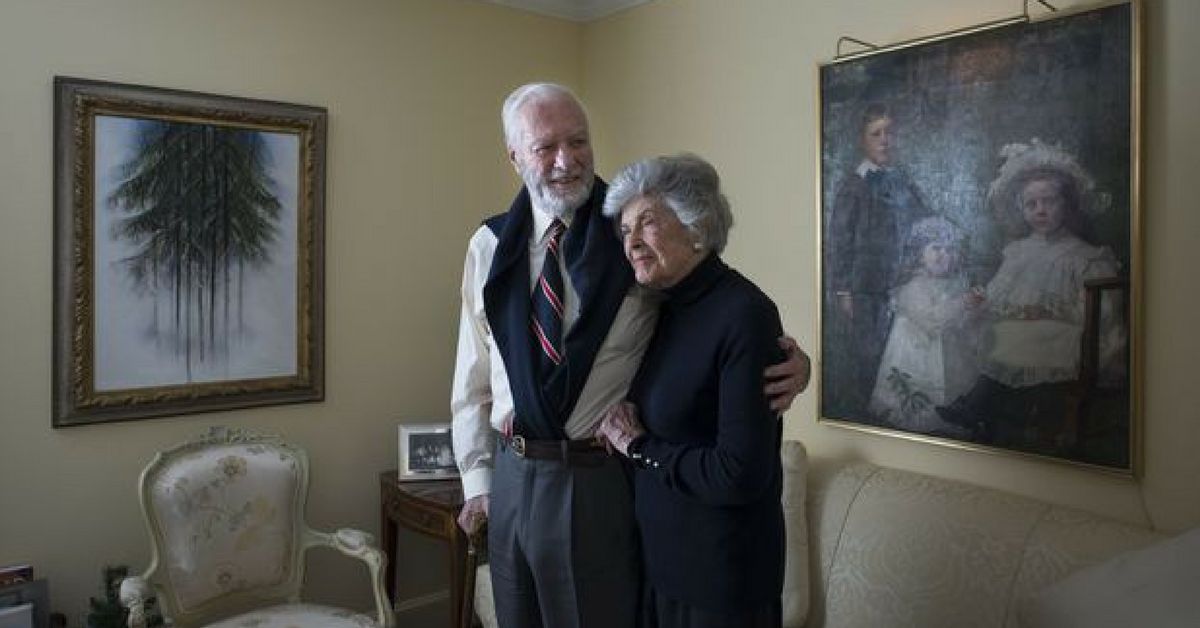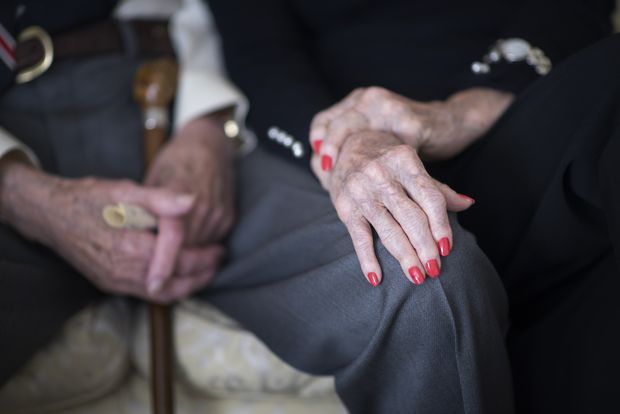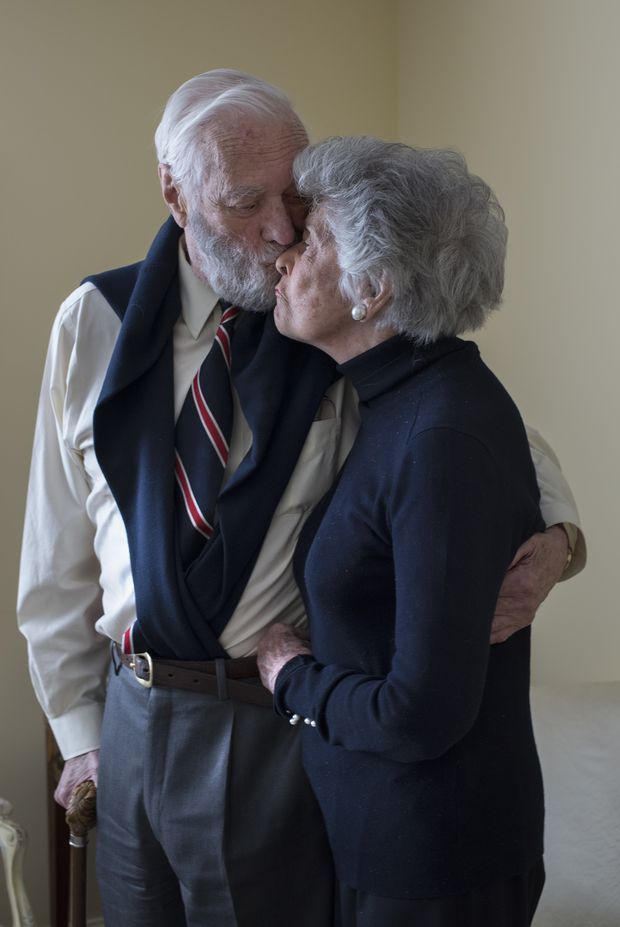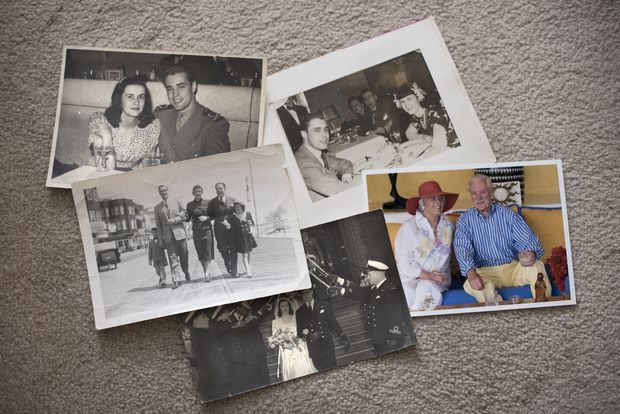When my partner and I got married, we took our vows to heart.
Like most couples, we said "to death do us part" with the utmost sincerity, and couldn't imagine it any other way.
While we're not always together (we have vastly different careers that take us to the opposite side of the country), the thought of not having him in my life breaks my heart.
This feeling has only gotten stronger as we've become older and built a life around each other. With three kids and two dogs, my husband has been my best friend, support system and rock.
This ideology isn't only held by us, as other long-term couples have shared the same sentiments, adding they couldn't live without each other, literally.
While there have been several stories of partners dying on the same day of their spouse in the media, they've all occurred naturally, and not by human-intervention - until now.
George, 95, and Shirley Brickenden, 94, had been married just shy of 73 years when they decided to receive a doctor-assisted death together.
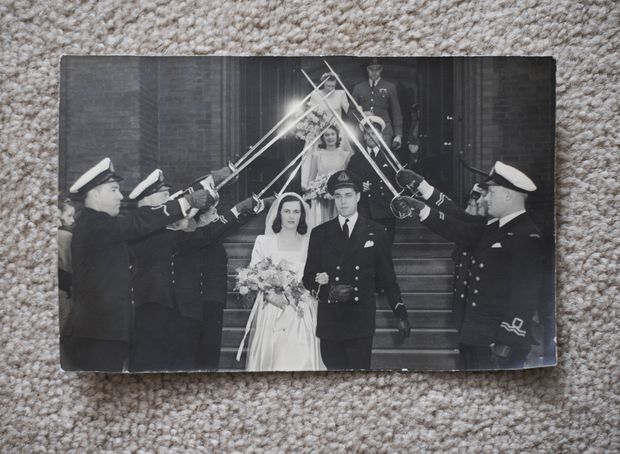
More commonly known as assisted suicide, the couple from Halifax, Canada decided to share with the public "what it meant to them to die at a time and place of their choosing," before they passed away together in March earlier this year.
The grandparents invited a journalist from The Globe and Mail to their predeath parties before they scheduled themselves to die. The day was reportedly filled with conversations "full of gratitude, gentle teasing and gallows humor," with family members coming from across the world to say their goodbyes.
"We witnessed, many years ago, someone we loved very much, a family member, who lived for several years and turned from being a magnificent human being into somebody you couldn't recognize, that lay in bed and made noises," Shirley explained.
"We thought then, 'Well, I don't care what happens when we get to zero. When we know it's the end, we're not going to do that,'" she added.
In 2016, the Canadian federal government passed a law that allowed medically assisted dying for people who were "suffering intolerably from a grievous and irremediable condition" and whose deaths were "reasonably foreseeable."
The elderly couple decided to find out if they qualified under the government's new terms, and while Shirley did due to her rheumatoid arthritis and failing heart, George was not.
While Shirley was qualified to receive a doctor-assisted death, she refused to "fly away" without George.
"Of course I wouldn't go without him and they knew I wouldn't. We had to wait and wait," Shirley explained. "Then, miraculously, he started to go downhill."
Just before his 95th birthday, George began fainting and passed out repeatedly. His daughter found him unconscious on his bathroom floor. His heart also began to fail and he was often in and out of the hospital with infections and a life-threatening case of the flu.
When George got the approval for a doctor-assisted death, their children Pamela, 71, Dal, 69, Saxe, 60 and Angela, 54 said they weren't surprised their parents wanted to die together.
"They've done everything together," Saxe said. "If Mom goes shopping for stockings, Dad's with her. Being that they're kind of one entity and they support each other so thoroughly, [dying together] seems only fitting."
While George and Shirley were adamant in their decision, the couple chose not to tell the majority of their friends and neighbors in their Toronto retirement home they would soon pass away.
"Many of our friends have flown away already," Shirley said, "and the ones that are left are very precious. It's very, very hard not to tell them. But you have to make a rule. You're either going to tell quite a few people or you can't tell."
Shanaaz Gokool, the chief executive officer of the advocacy group Dying with Dignity, helped prepare Shirley and George for their doctor-assisted death. She said it's exceptionally rare for couples to die together, as each individual has to meet a high level of criteria.
"The safeguards are there for a reason. The thing that's most important here is that the clinicians who are doing this work are doing their job correctly. Each case has to be assessed on its own, individual merits," Gokool said.
Adding that she's only aware of one other Canadian couple who has received an assisted death together, Gokool said that George and Shirley's decision to die together "is the final articulation of the love that they've had for each other for nearly 73 years."
And she's not the only one who thinks so.
Two days before George and Shirley passed away, they went on their final date to their favorite restaurant, followed by their final goodbye party the day after at their daughter Pamela's apartment.
Their peaceful final days were followed by the serene evening of their death, as they were surrounded by their two doctors, the Dean of Toronto's St. James Cathedral, and by three of their four children and their spouses.
Saxe created a playlist per his mother's wishes, which included Mozart, Bach and Scottish folk songs, as Shirley and George laid in their bed and had their doctors insert intravenous lines into their respective arms.
"It couldn't have been a better way to go. Totally peaceful," Angela said. "It allowed them to bow out gracefully together, as they lived."
The children rubbed their parents's feet and said the beloved couple drew their final breaths, at nearly identical moments.
They said their father died, he looked at his family for the final time, and said, "I love you all."
Do you think medically assisted death should be legalized across the globe?
[H/T: The Globe and Mail]
